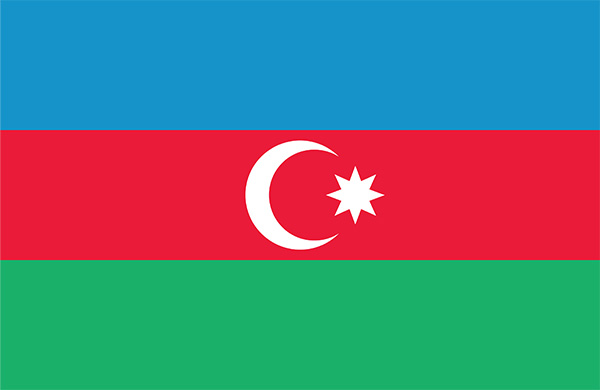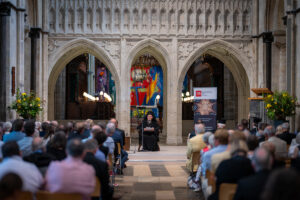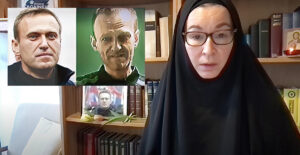Many saw the recent conflict between Azerbaijan and Armenia as a revival of the dark days of the Armenian Genocide of the early twentieth century, when the Ottoman government pursued the systematic extermination of 1.5 million Armenians, mostly Ottoman citizens within the Ottoman Empire and its successor state, the Republic of Turkey, as well as over 1,000,000 Greek Orthodox Christians. Hundreds of thousands of people were forcibly converted to Islam. To this day, the Turkish government refuses to acknowledge this atrocity as a genocide, saying that it was simply a religious conflict between Christians and Muslims.
During the recent conflict, many saw the similarities: “To educated observers and the victims themselves, this year’s aggression has all the markings of an ongoing Christian genocide,” as was evidenced by Azerbaijan’s targeting of churches.
As we continue to see the Ecumenical Patriarchate and our Mother Church of Constantinople suffering from religious persecution, and note with sorrow the persecution of Christians in the Middle East and elsewhere today, and pray that this crisis will pass peacefully and that such inhumanity will never again be seen anywhere in the world.
For more ChristianPersecution.com coverage of the persecution of Christians in Azerbaijan, see here.
“Beheaded Armenian Christians Identified,” International Christian Concern, December 26, 2020:
12/16/2020 Nagorno-Karabakh (International Christian Concern) – Two elderly Armenian Christian men beheaded by Azerbaijani armed forces have been identified. They were residents in the villages of Madatashen and Azokh in Nagorno-Karabakh (Armenian: Artsakh).
The first victim was named Genadi Petrosyan, was 69 years old, and was from Madatshen. He escaped Azerbaijan to Nagorno-Karabakh in the late 1980s, a decision that corresponded with Armenian pogroms in Azerbaijan during the late 1980s/early 1990s. The second victim was named Yuri Asryan, who was 82 years old and was from Azokh. Both men were civilians.
Hundreds of videos have emerged of violent war crimes committed by Azerbaijani armed forces against the Armenian community. These crimes bear a striking resemblance to tactics used during the 1915 genocide against Armenian Christians. Indeed, Turkey (who supports Azerbaijan during this conflict and who was the main instigator of the 1915 genocide) has made it clear through rhetoric that this conflict is driven by a desire for Turkish-Islamic expansionism.
Azerbaijan has arrested four servicemen accused of war crimes (not these two crimes specifically), but also seeks to distract from international pressure by making comparisons to the actions of other countries. Azerbaijan needs to take responsibility for its own instigating role in the conflict and for its own war crimes, before pointing at others. It is also important to note that Azerbaijan ranks 168 out of 180 on RSF’s press freedom index. Armenia, on the other hand, rates 61 out of 180.
Photo By © Benoît Prieur / Wikimedia Commons, CC BY-SA 4.0, https://commons.wikimedia.org/w/index.php?curid=61324372







